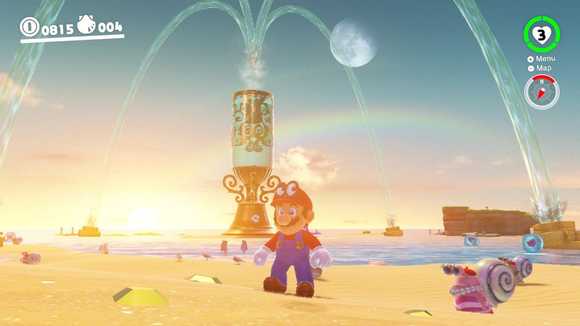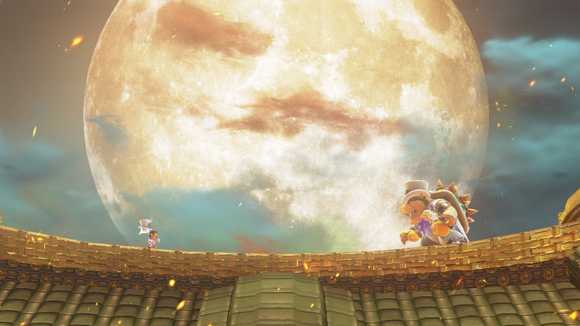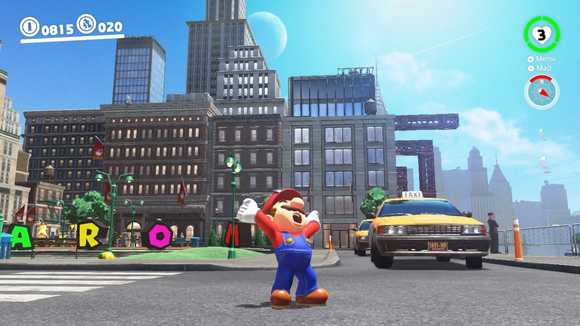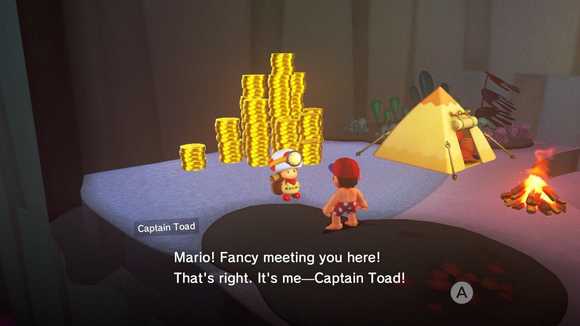Big-N’s Big Year
Since the failure of the Wii U, Nintendo’s future had been in question. Sell to Disney? Sell to Apple? Retire Mario?
The question marks and judgement loomed with the 2016 announcement of Nintendo’s new console, the Switch. A console poised to bring the worlds of mobile and set-top gaming together. The dream. But could a company founded on family friendly, under-powered hardware make a dent against the HD twins (PS4 and Xbox One) and a world where seemingly everyone above age 12 carries around a mobile supercomputer?
Questions. Questions. Questions.
In 2017, Nintendo answered.
Shortly after this piece was published Brendon Bigley, formerly of Anchor.fm, interviewed me to discuss the state of Nintendo. The interview was later added to the Ported Podcast feed.
You can also find the episode here:
Switch
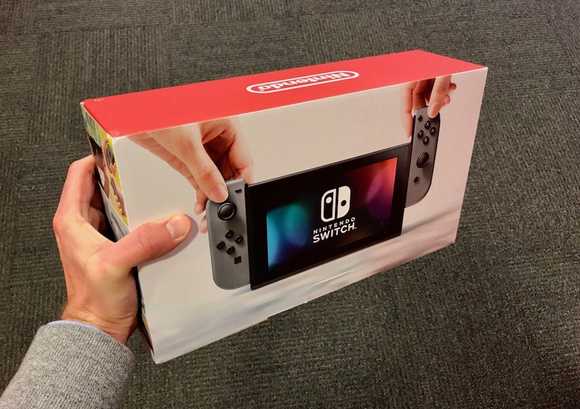
The Switch is a literal game changer and its portable/set-top hybrid gimmick is working.
Released world-wide on March 3, 2017, the Switch has sold 7.63 million units as of September 30, 2017, according to Nintendo’s six months financial results briefing for Fiscal Year Ending March 2018. To offer some context, Wii U shipped 3.61 million units in its first 7 months, PS4 sold 7.0 million in its first 5 months; 10 million in 10 months. Microsoft has kept much of the Xbox One’s numbers quiet, but the console sold 3.9 million units in the first 2 months, almost 10 million in 12 months. For the long-game, the PS2 sold 155 million units. The anomalous Wii had lifetime sales of 101.63 million. Xbox 360 sold 84 million units. PS3 sold 80 million.
In the same briefing, Nintendo revealed that over 50% of owners play in both portable and TV modes, 30% play exclusively portable mode, and the remaining 20% play exclusively TV mode.
Compromises notwithstanding, there also seems to be a growing yearning for all games to be brought to the Switch. I’ve unhooked my PS4 and Xbox One. I’ve moved my Switch dock to my nightstand. I’ve gone full handheld. Nintendo has successfully untethered the console gaming experience from the TV, and it’s difficult to go back. The divided worlds of handheld and set-top gaming have coalesced and it’s everything we’d ever dreamed it would be. Without a doubt, this is a future Nintendo has been envisioning since the wildly successful Game Boy.
The Legend of Zelda: Breath of the Wild
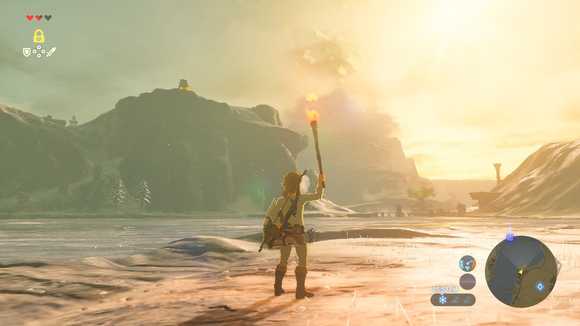
Launched alongside the Switch in March, The Legend of Zelda: Breath of the Wild came out of the gates a scorcher.
To set the stage, the initial teaser for the Wii U (prior to the announcement of the Switch) gave a glimpse of an open-world Hyrule, an art style blending The Wind Waker’s cell-shaded cartoon aesthetic and The Twilight Princess’s realism, and an action-packed cinematic:
https://www.youtube.com/watch?v=XZmxvig1dXE
But it was still yet to be determined if Nintendo was truly offering the open-world 3D Zelda adventure fans had been dreaming of since the original?
Could Nintendo actually deliver an open-world game on par with the likes of Rockstar’s Grand Theft Auto and Bethesda’s Skyrim? If so, how would it innovate? How could it innovative? Would Nintendo’s beloved IP be a fit for an experience of that magnitude? Could Nintendo deliver something of that size and scale?
Nintendo’s 2016 E3 trailer would set imaginations ablaze:
https://www.youtube.com/watch?v=1rPxiXXxftE
Nintendo seemed to be offering up answers to every question.
Lo and behold, they delivered one of the greatest, most innovative gaming experiences of all time. It not only checked every box and crossed off every worry, it set new standards for open-world games.
From the onset, the player is cast out into the world. There is little in the way of tutorials and much in the way of freedom. Players can roam anywhere and climb anything. The world is a sandbox that encourages invention by utilizing elemental chemistry. Damn near anything is possible. There is no standard way to play the game. Gating is thrown away in lieu of trusting the player to the creation of the designers. Both player and designer are treated with equal importance. In The Legend of Zelda: Breath of the Wild, respect is a two-way street.
https://www.youtube.com/watch?v=30jGWna4-Ns
That’s not to say that I think the game is perfect. I have my gripes. I feel the music is lacking. Aesthetically, it is not a world I’m keen to revisit. The sword delicacy is maligned. Characters — NPCs and enemies — become repetitive. There is a lack of character present in previous Zelda entries — namely A Link Between Worlds. While this list seems like it would break a game, these faults are surprisingly easy to look past. The game is just that good.
The Legend of Zelda: Breath of the Wild is the best selling Switch title to date, now exceeding 4.7 million units. During its launch month, Zelda sold at an unprecedented 100% attach rate for the Swtich. The game maintains a 97 Metacritic score and boasts a 170 hour “completionist” play time on HowLongToBeat.com.
Regardless of your standard of measuring a game, one thing can be said — The Legend of Zelda: Breath of the Wild is a special experience. Nintendo stripped one of their most beloved franchises down to its core and rebuilt it in a way that sets the standard for open-world games going forward.It is a triumph for a myriad of reasons; but most of all, like the Switch, it was reliving on a dream.
Mario Kart 8 Deluxe
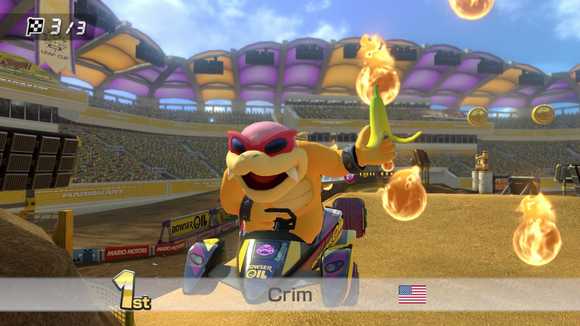
Wii U’s abysmal sales are no indication of the quality of games produced for the console. Arguably, it’s home to some of the greatest Nintendo titles ever — Mario Kart 8, New Super Mario Bros. U, Super Mario 3D World, Super Smash Bros. for Wii U, Splatoon, Super Mario Maker, The Legend of Zelda: The Wind Waker HD. The Wii U’s hit to miss ratio is sure to be one of the lowest of any console, yet most potential players missed out on surefire classics. Thankfully, Nintendo bolstered the Switch’s launch year line-up with one of the best.
Mario Kart is a household favorite franchise, and Mario Kart 8 is the best of it’s form. Selling 4.42 million units, porting the greatest Mario Kart game to the Switch so early in its lifecycle was a brilliant move. It allowed Wii U owners to share the experience with the uninitiated and show off the Switch’s built in local multiplayer gimmick. Playing Mario Kart is like riding a bike. With the Switch’s ever-present multiplayer, players can crack off the Joy-Cons and immediately share and experience. Maybe even an office tournament:
On Mario Kart 8 Deluxe‘s_ _release day, I brought my Switch to work. It was the perfect venue to test the Switch’s out-of-the-box local multi-player experience. In fact, it was the first time I’d attempted any multi-player on the device in any of its various forms. As far as I know, I’m the only one in the office with a Switch. Gasps filled the room when I removed the Joy-Con from the display. I handed one over to a colleague, showed him around the tiny controller, and away we went.
Mario Kart 8 Deluxe wasn’t much more than Mario Kart 8 + the DLC with a new Battle Mode. Whereit falls short is it’s insistence to unlock everything the original game had to offer. It’s certainly a great value to provide new players with everything there is to offer, but nothing is left for anyone to pursue. I’d have loved to re-race for the cups I’d previously unlocked for the Wii U version. It was truly surprising how demotivating it was to play one of my favorite games when everything had been achieved for me.
However, while I still believe retailing for $60 is a bit high for the title, it can’t be understated how great it is to have the highest-fidelity, local multiplayer ready, greatest Mario Kart game with you at all times.
Splatoon 2
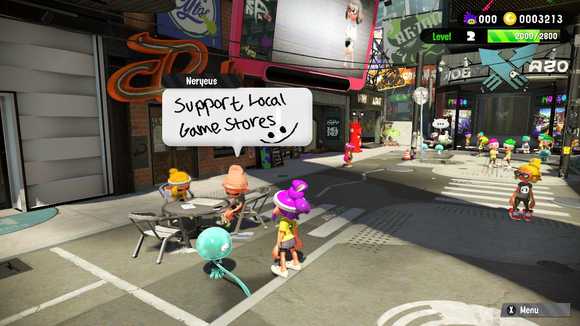
In the vain of Wii U ports, Splatoon 2, the sequel to the Wii U’s Splatoon, sold nearly 75% of the original within 2 months (3.61 compared to 4.87 million units).
Splatoon takes the shooter genre and turns it into a kid-friendly paintball frenzy. Splatoon 2 added tot he experience by offering a single-player campaign. But the addictive core of the game is its short, territory-hording Turf Wars. Two teams do their best to ink as much of a stage’s territory in their color while warding off the opposing team. The bouts are short and weigh-in much like a Mario Kart race. It’s always anybody’s game. Players can feel just as important in supporting roles as they can on offense.
Splatoon 2 was the first game to support Nintendo’s Switch Online iOS and Android app. Though, much ire was drawn by the app’s poor online chat service. (Players are forced to route communications through their smartphone as opposed to the Switch.) I have not had an opportunity to use the app, so I will not comment.
In addition to a problematic smartphone app, my main gripes with Splatoon 2 are the inability to back out of lobbies while waiting for players as well as the near impossible task of playing with folks on your friends list. It’s infuriating.
However, the core game is still a delight and shows off the prowess of the Switch’s online multiplayer — at least once a match is underway. Splatoon 2’s stylistically original and serves as an inviting experience for all next to its gritty wartime counterparts.
Mario + Rabbids Kingdom Battle
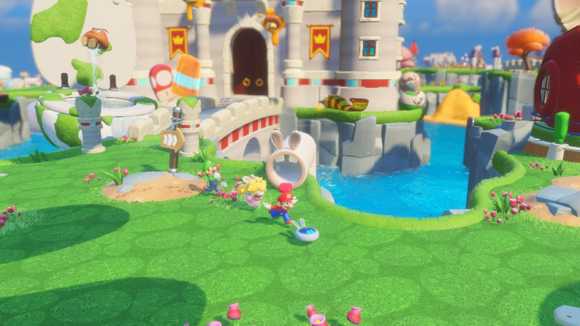
In August, Ubisoft delivered the first Mario experience on the Switch. Yes. Ubisoft. Not Nintendo. Ubisoft. Trusted with Nintendo’s icon and core franchise, Ubisoft delivered not only a charming title on par with other Mario entries, but a tight, satisfying, and unique strategy game to boot.
In the vain of XCOM, Mario + Rabbids Kingdom Battle plays like cartoon chess. The player selects a team of three (Mario + two other characters, so long as one is a Rabbid) to battle a slew of Rabbid baddies in a series of turn-based bouts across 4 worlds. As players progress, weapons are upgraded and skills are gained. There are plenty of collectibles to keep completionists active. Difficulty spikes are educational rather than infuriating. And the Mushroom Kingdom is more gorgeous than ever.
VGChartz puts the game at 0.51 million units sold, which doesn’t seem like a huge disappointment, but for a game that I thoroughly enjoyed, I’d like to see it bump up a bit this holiday season. Mario + Rabbids Kingdom Battle is an absolute delight.
Nindies
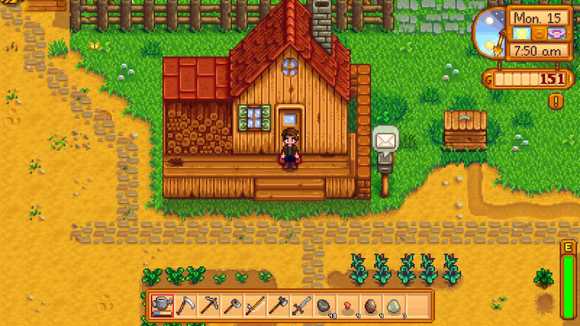
Say nothing of big third-party titles like Mario + Rabbids Kingdom Battle, Skyrim, or Doom, the growing selection of top-notch indie — or “Nindie” — titles is nothing to scoff at.
One of the biggest concerns of Nintendo is their seeming inability to attract third-parties to their consoles since the SNES. The Switch is no different. It is the “second console”. But, boy has it attracted grade-A titles. The current #Nindie Hits roster looks a little something like this:
- Shovel Knight: Treasure Trove
- Rocket League
- Stardew Valley
- Overcooked
- Axiom Verge
- Retro City Rampage DX
- Cave Story
- Severed
- SteamWold Dig 2
- Golf Story
- TumbleSeed
- Thumper
- and more!
While Nintendo has been quiet on first-party titles for 2018, the plethora of indies (and major third-parties) porting to the console provides Switch owners a stable of great games for months, nay, years to come.
SNES Classic
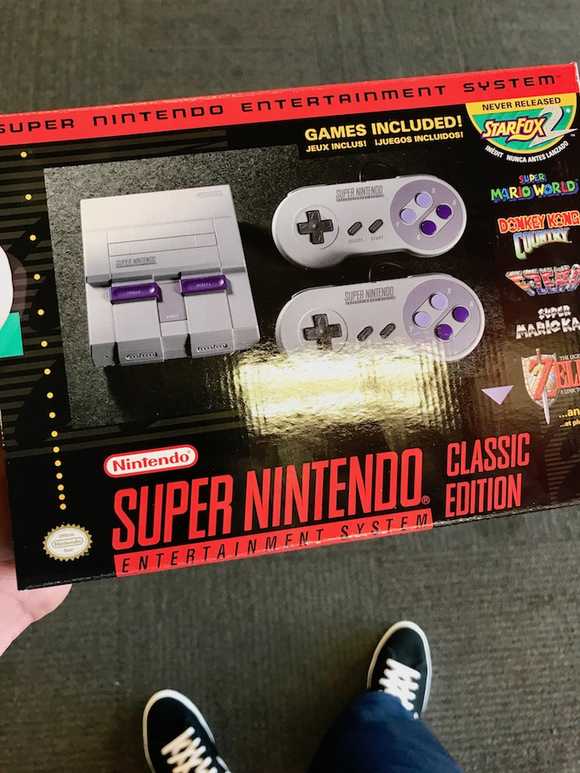
Boy howdy, get the nostalgia intoxicated ready. On the heels of Nintendo’s wildly… successful(?) NES Classic came the SNES Classic. With a library of 21 classic — arguably essential — games, the SNES Classic was/is the hot item of 2017.
Launching on September 29, 2017, retail lines and online pre-orders were a mess. I’d imagined Nintendo had learned from the missteps of the NES Classic, but seemingly, no. Initially, it may have been easier to stumble across one, but it has again turned into a frenzy for the little throwback.
Whatever the issue, be it awful channel supply or manufacturing woes, the Classic series is another fortune in Nintendo’s pocket — if not monetarily, for the press coverage.
Super Mario Odyssey
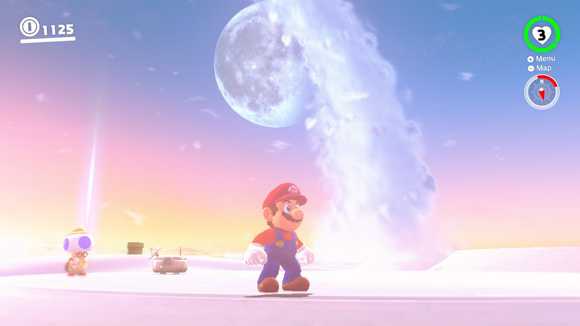
Super Mario. The pinnacle of Nintendo’s franchises.
A new Mario title is something special. The best video game maker does not squander its resources on Mario. Nintendo uses Mario to define console generations, gameplay innovation, artistic direction, and design standards. Mario is as much an icon as he is a vision.
Super Mario Odyssey launched on October 27, 2017 — 7+ months into the Switch’s lifecycle. It is a reimagining of the Mario series, with a series of worlds outside of the Mushroom Kingdom in a play-style similar to arguably the most important Super Mario game of all time — Super Mario 64. (If that last sentence gives you pause, just wait until you beat the game.)
Like Zelda, I have my qualms with Super Mario Odyssey. The world design is too disjointed without a cohesive story. The move-set is over-the-top. The inability to distinguish what Cappy (Mario’s new hat-companion) can and can’t possess is frustrating. The music sides cinematic over thematic. The main storyline is… odd, if not gross. Overall, little outside of New Donk City is memorable.
My misgivings aside, numbers speak for themselves. Like Zelda, Super Mario Odyssey boasts a 97 Metacritic score. “Within three days of its release, the game had sold over two million copies worldwide.” (Wikipedia) Nintendo of Europe claimed that Super Mario “Odyssey is both the fastest-selling Mario game and Switch game ever in the region.”
Super Mario Odyssey is without a doubt a change of pace for the franchise. While I do wish the execution was a bit tighter, I am likely in the minority. Through and through, it is a quintessential Mario game. It is undoubtedly fun and innovative; charming and warm. It is the perfect nightcap to Nintendo’s fantastic year.
Game of the Year
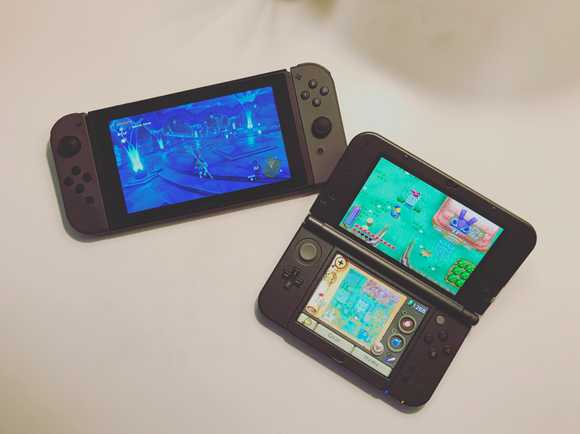
From the launches of the Switch and The Legend of Zelda: Breath of the Wild in March, the announcement of a Nintendo theme park, frenzied and flawed retailing of the SNES Classic in September, to the heralded Super Mario Odyssey in October and stable 3DS sales throughout, 2017 was Nintendo’s year.
Nintendo has established that great gaming experiences should not be limited to TVs. It’s hard to imagine the Switch wasn’t always the company’s vision. The Game Boy sold 118.69 million units. The DS: 154.02 million. The 3DS: 68.98 million and remaining stable. The Wii U, while a flop, put the writing on the wall. Porting gameplay to the GamePad was a now obvious sneak peek at the future we’d all been dreaming of.
The company is projecting nearly double operating profit from the previous fiscal year, forecasting 960 billion yen ($8.6 billion), up from 489 billion ($4.39 billion). While it seems obvious that the 3DS line will eventually spin down, they’ve just released the new 2DS XL line as well as decent stream of games. Meanwhile, the Switch is just getting started on what appears to be a very bright future.

